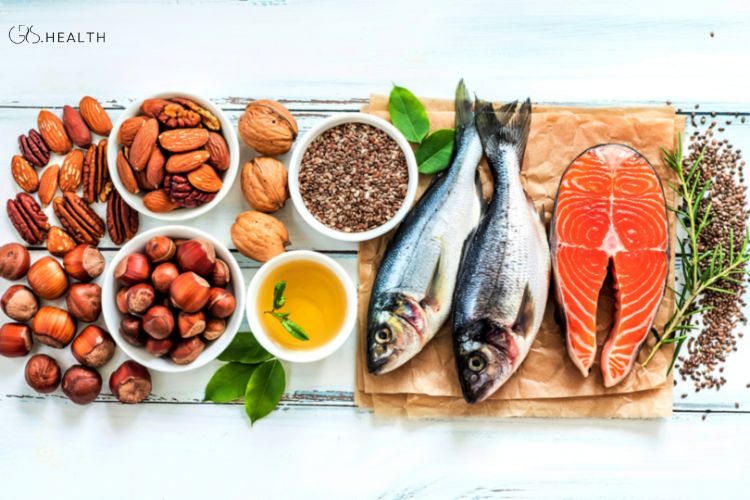Asthma is a chronic respiratory condition marked by airway inflammation, bronchial hyperresponsiveness, and intermittent airflow obstruction. While medications are the cornerstone of asthma management, emerging research highlights the role of diet in reducing inflammation and easing symptoms. Identifying the best foods for asthma and eliminating trigger foods may help improve lung function and reduce flare-ups.
How Diet Affects Asthma Symptoms
Diet influences systemic inflammation, immune response, and oxidative stress—all of which can affect asthma severity. Nutrients like omega-3 fatty acids, antioxidants, magnesium, and vitamin D have been shown to positively impact lung health. Conversely, pro-inflammatory foods high in saturated fats, sugars, and additives may exacerbate symptoms.
Foods That May Help Manage Asthma
1. Fatty Fish
Salmon, mackerel, sardines, and tuna are rich in omega-3 fatty acids. These healthy fats reduce airway inflammation and improve pulmonary function, making them among the best foods for asthma.
2. Leafy Greens
Spinach, kale, and Swiss chard contain magnesium and antioxidants. Magnesium is known to help relax the airway muscles, aiding in easier breathing.|
(Read more about the benefits of spinach in our article.)
3. Apples
Apples contain flavonoids, particularly quercetin, which has anti-inflammatory and antioxidant effects. Studies suggest regular apple consumption is linked to improved lung function.

4. Berries
Berries like blueberries and strawberries are loaded with polyphenols and vitamin C, which support immune function and reduce airway inflammation.
(Check out my article on the benefits of blueberries)
5. Turmeric
Curcumin, the active compound in turmeric, has potent anti-inflammatory properties and has been studied for its role in respiratory disease management.
6. Avocados
Avocados are high in glutathione, a powerful antioxidant that helps reduce oxidative stress in lung tissue.
(I suggest you read my article on avocado consumption. It provides more information on the topic)

7. Nuts and Seeds
Almonds, flaxseeds, and sunflower seeds offer vitamin E and omega-3s, both beneficial in controlling inflammation.
8. Beans and Lentils
Rich in fiber and plant-based proteins, legumes help support gut health, which in turn benefits immune balance and inflammation control.
Foods to Avoid If You Have Asthma
1. Processed and Fried Foods
Fried items and ultra-processed snacks contain trans fats and additives that can increase systemic inflammation.
2. Sulfite-Containing Foods
Sulfites, used as preservatives in wine, dried fruits, and pickled products, can trigger asthma symptoms in sensitive individuals.
3. Dairy Products
Some individuals report increased mucus production with dairy, although evidence is mixed. It may be beneficial to monitor individual tolerance.
4. Artificial Sweeteners and Additives
Food dyes, preservatives, and artificial flavorings may cause hypersensitivity reactions and worsen asthma in susceptible people.
5. Sugar and Refined Carbs
High-sugar diets can contribute to obesity and inflammation, both of which can aggravate asthma symptoms
Hydration and Asthma
Staying hydrated helps thin mucus in the airways, making it easier to breathe. Water, herbal teas, and low-sugar smoothies can support hydration and offer antioxidants.
Special Considerations: Allergies and Asthma
Many people with asthma also have food allergies. It’s critical to identify and avoid allergenic foods like peanuts, shellfish, or eggs that may trigger respiratory symptoms.
Sample Asthma-Friendly Meal Plan
Breakfast:
- Oatmeal with blueberries and flaxseeds
- Green tea
Lunch:
- Grilled salmon on kale and quinoa salad
- Apple slices
Snack:
- Handful of almonds and turmeric smoothie
Dinner:
- Lentil soup with spinach
- Baked sweet potato
Supplements and Nutrients to Discuss with Your Doctor
- Vitamin D: Low levels are linked to increased asthma severity.
- Magnesium: Supports airway function
- Omega-3s: Anti-inflammatory properties
Before starting any supplement, consult a healthcare provider.
(For a comprehensive understanding of Low Vitamin D Symptoms, please refer to this article.)
Conclusion
Incorporating the best foods for asthma into your diet can support your respiratory health and reduce flare-ups. While food isn’t a substitute for medication, a nutrient-rich, anti-inflammatory diet may complement asthma treatment.
Sources
- Harvard T.H. Chan School of Public Health, Omega-3 Fatty Acids
- American Lung Association, Asthma and Nutrition: How Food Affects Your Lungs
- NIH, Magnesium and Asthma
- Mayo Clinic, Asthma Diet: Does What You Eat Make a Difference?










